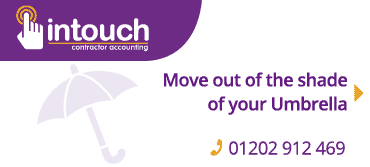How much salary should I pay myself as a Limited Company Contractor
Article Author: Duncan Strike Posted on: May 12, 2015 (Full Author Bio in the box on the right side) 7092 views
7092 views

Making the right choice on the level of salary to draw as a Limited Company director and contractor is one of the more important decisions to take. Surprisingly though it’s not just an annual decision, taken at the beginning of each tax year, but one that should be revisited whenever changes occur in your circumstances.
To fully understand the mechanics affecting the choice of salary requires a working knowledge of Income Tax (PAYE), National Insurance and IR35, Corporation Tax and the rules concerning National Minimum Wage and that’s something your specialist contractor accountant can help you with. But to avoid a detailed technical analysis we can whittle these down to a short list of considerations.
I’m subject to IR35, so it makes no difference
If you are subject to IR35 your eventual salary is determined according to the defined rules of IR35; however you retain the choice of how much to take during the year that affect the amount of tax payable and when it is payable.
The Employment Allowance (EA) was introduced in April 2014 to provide a deduction of up to £2,000 from the Employer’s NI payable by your company. However EA is not available to any part of your salary determined as a deemed payment under IR35 and so only deductible against Employer’s NI payable on normal salary. You should therefore set a level of normal salary that utilises the EA limit. For 2015/16 the level of salary that fully utilises EA would be £22,552.
The second choice concerns timing of tax payments. Taking a monthly salary that utilises EA will result in quarterly PAYE and NI payments, whereas the tax on the deemed salary is payable at the end of the tax year. So it would appear better to keep your salary low enough to utilise the EA and leave the IR35 balance to be determined at the end of the year and pay PAYE and NI much later.
Although one point to appreciate is that any money taken from the company on account of a final IR35 salary will be a loan and subject to beneficial loan interest rules when the loan exceeds £10,000. A minor point not to be overlooked.
What about National Minimum Wage (NMW)?
New rules introduced in March 2015 mean that any failure to pay NMW can result in a fine of £20,000 per employee. Ok, this is unlikely to be an issue in practice, but HMRC can take action where the NMW rules apply and such a fine is an attractive motivator.
NMW only applies to Limited Company contractors who are the directors of the company where there is a contract of employment, and to the company’s employees. If you are one of the few contractors that has issued a contract to yourself then you should pay the NMW. Since October 2014 this is £6.50 and from October 2015 it is expected to be £6.70.
NMW has no influence over IR35 status and can be ignored where no contract of employment exists.
Are you thinking of pensions?
The level of salary taken affects the level of personal pension contributions you are able to make that take advantage of the tax benefits. If you pay pension contributions then you should seek advice from your financial advisor on the minimum required level of salary to support the tax benefits.
I’m outside IR35, pay enough to support my pension provisions and don’t have a contract of employment
Congratulations, you have complete freedom of choice. You can set any level of salary that now suits your personal circumstances and your view on tax. The next step in this discussion assumes that you want to minimise tax. If that’s not your driver then select any level of salary that you want and can be supported by the company’s income.
Most contractors are aware that dividends incur less tax than salary because NI does not apply to dividends. However there is a minimum level of salary that should be taken that overall reduces total tax (Income Tax, National Insurance and Corporation Tax). That minimum level used to be linked to the thresholds when NI became payable, however since the introduction of EA the best level of salary is linked to your personal tax allowance.
Personal Allowances (or your tax free allowance) changes every year. For 2015/2016 most contractors start off with Personal Allowances of £10,600. This typical level may be reduced if you have tax liabilities from earlier years that are collected via your tax code or you have any taxable benefits in kind. If you are not sure then obtain a copy of your tax code calculation from HMRC.
Your Personal Allowance is a tax free allowance and is set against your total income. So if you have other income such as interest or rental income then deduct the gross value of that other income and you are left with your available Personal Allowance.
The level of your available Personal Allowance is often the best level for your salary that achieves the least tax liability overall.
Let’s explain that with some examples:
Assumptions:
Personal Allowance is £10,600
No higher rate tax (but only to keep it simple)
No other income
Profit after expenses but before salary £40,000
Available dividends are declared
|
Example salary |
8,000 |
10,600 |
12,000 |
0 |
|
Profit before salary |
40,000 |
40,000 |
40,000 |
40,000 |
|
Salary |
8,000 |
10,600 |
12,000 |
0 |
|
Profit |
32,000 |
29,400 |
28,000 |
40,000 |
|
Corp Tax |
6,400 |
5,880 |
5,600 |
8,000 |
|
Salary |
8,000 |
10,600 |
12,000 |
0 |
|
Allowances |
8,000 |
10,600 |
10,600 |
0 |
|
Income Tax |
0 |
0 |
280 |
0 |
|
Employees NI |
0 |
305 |
473 |
0 |
|
Employers NI |
0 |
0 |
0 |
0 |
|
PAYE / NI |
0 |
305 |
753 |
0 |
|
Total tax |
6,400 |
6,185 |
6,353 |
8,000 |
Conclusion: Salary at Personal Allowance is the least tax
Now let’s compare the result where Personal Allowances are £8,000 because of underpaid tax brought forward
Assumptions as above except:
Personal Allowance is restricted to £8,000
|
Example salary |
8,000 |
10,600 |
12,000 |
0 |
|
Profit before salary |
40,000 |
40,000 |
40,000 |
40,000 |
|
Salary |
8,000 |
10,600 |
12,000 |
0 |
|
Profit |
32,000 |
29,400 |
28,000 |
40,000 |
|
Corp Tax |
6,400 |
5,880 |
5,600 |
8,000 |
|
Salary |
8,000 |
10,600 |
12,000 |
0 |
|
Allowances |
8,000 |
8,000 |
8,000 |
0 |
|
Income Tax |
0 |
520 |
800 |
0 |
|
Employees NI |
0 |
305 |
473 |
0 |
|
Employers NI |
0 |
0 |
0 |
0 |
|
PAYE / NI |
0 |
825 |
1,273 |
0 |
|
Total tax |
6,400 |
6,705 |
6,873 |
8,000 |
Conclusion: Salary at Personal Allowance is still the least tax
Important: PLEASE SEEK PROFESSIONAL ADVICE BEFORE COMING TO AVOID ANY CONFUSION
Latest Posts
-

Staying HMRC Compliant: VAT Returns Have Chan...
by Amanda Swales on January 29, 2020 Accounting & Tax -

Self Assessment Tax Return 101 - Filling In T...
by Amanda Swales on January 15, 2020 Accounting & Tax -

-



 10 Must Have iOS Apps for UK Contractors
10 Must Have iOS Apps for UK Contractors  Why Contractors should set up a home office
Why Contractors should set up a home office  How Important is IR35 and Tax Planning to Contractor Accountants
How Important is IR35 and Tax Planning to Contractor Accountants  Where is your IT contracting career going
Where is your IT contracting career going  Is Umbrella Company the best solution for first-time Contractors?
Is Umbrella Company the best solution for first-time Contractors?  Great Chance to Win a Trip to Monaco for IT Contractors
Great Chance to Win a Trip to Monaco for IT Contractors  Why Contractors should save for a rainy day
Why Contractors should save for a rainy day  5 benefits of contracting through an umbrella company
5 benefits of contracting through an umbrella company  6 free tools all contractors should use
6 free tools all contractors should use  5 New Contractor Mortgages Friendly Lenders Enter The Market
5 New Contractor Mortgages Friendly Lenders Enter The Market  Do I Need To Complete The Self Assessment? How To Know If You Have A Tax Return Due
Do I Need To Complete The Self Assessment? How To Know If You Have A Tax Return Due  Benefits for Freelance Contractor Mortgages Insurance
Benefits for Freelance Contractor Mortgages Insurance  UK plc confused about T&S regulations says FCSA research
UK plc confused about T&S regulations says FCSA research  What a Directors loan means and who can take one
What a Directors loan means and who can take one  What all recruiters need to know
What all recruiters need to know  Why Contractors MUST Download TeraCopy Freeware
Why Contractors MUST Download TeraCopy Freeware  Is there light at the end of the tunnel for UK Contractors
Is there light at the end of the tunnel for UK Contractors  Is contracting the key to a successful and family-friendly career
Is contracting the key to a successful and family-friendly career  MP David Morris calls for new IR35 legislation for Contractors
MP David Morris calls for new IR35 legislation for Contractors  The golden rule of Contracting
The golden rule of Contracting  The true value of umbrella companies for UK contractors
The true value of umbrella companies for UK contractors  Doubt is cast on HMRC new IR35 proposals for contractors
Doubt is cast on HMRC new IR35 proposals for contractors  How will Supervision Direction or Control rules affect Contractors
How will Supervision Direction or Control rules affect Contractors  How will the new tax year affect IT Contractors and Umbrella Companies
How will the new tax year affect IT Contractors and Umbrella Companies  Top 5 things a first-time Contractor should do when switching to Contracting
Top 5 things a first-time Contractor should do when switching to Contracting  Election 2015 - what is in it for contractors and freelancers
Election 2015 - what is in it for contractors and freelancers  FCSA urges Osborne to get his facts right before tarnishing all contractors
FCSA urges Osborne to get his facts right before tarnishing all contractors  First Time Buyers get cashback on Contractor Mortgages
First Time Buyers get cashback on Contractor Mortgages  APSCo backs call for strategic review which could end raw deal for contractors
APSCo backs call for strategic review which could end raw deal for contractors  How does the recent IR35 changes in the public sector affect UK contractors?
How does the recent IR35 changes in the public sector affect UK contractors?  HMRC Employment Status Service tool - How accurate is it in determining the IR35 risk for contractors?
HMRC Employment Status Service tool - How accurate is it in determining the IR35 risk for contractors?  RIP Business Entity Tests
RIP Business Entity Tests  Will the low rates mortgage price war benefit UK Contractors?
Will the low rates mortgage price war benefit UK Contractors?  Understanding tax basics - a guide for contractors
Understanding tax basics - a guide for contractors  What is the 24 month rule and how does it apply to Contractors
What is the 24 month rule and how does it apply to Contractors  Festive Gift Ideas for Limited Company Directors
Festive Gift Ideas for Limited Company Directors  A checklist and timeline for new Contractors
A checklist and timeline for new Contractors  Contractor paid 2500 GBP to HMRC for tax return mess up
Contractor paid 2500 GBP to HMRC for tax return mess up  Fun ways to save money for the adventurous contractor
Fun ways to save money for the adventurous contractor  5 Trusted Contractor Services Providers in the UK
5 Trusted Contractor Services Providers in the UK  Amendments in Finance Bill to prevent misuse of Personal Service Companies
Amendments in Finance Bill to prevent misuse of Personal Service Companies  Changes to the Flat Rate VAT Scheme are coming - are YOU ready?
Changes to the Flat Rate VAT Scheme are coming - are YOU ready?  How much salary should I pay myself as a Limited Company Contractor
How much salary should I pay myself as a Limited Company Contractor  Top 10 cash flow tips for IT Contractors
Top 10 cash flow tips for IT Contractors  Registrar of Companies Scam Letter sent to Businesses
Registrar of Companies Scam Letter sent to Businesses  RTI offers annual option for contractors
RTI offers annual option for contractors  Autumn Statement 2016 - How will the VAT Flat Rate Scheme Restriction Affect Contractors?
Autumn Statement 2016 - How will the VAT Flat Rate Scheme Restriction Affect Contractors?  The top 3 common mistakes Contractors make
The top 3 common mistakes Contractors make  Insulting to Contractors
Insulting to Contractors  Contractors feel puzzled of the UK job market
Contractors feel puzzled of the UK job market  Umbrella Company and IR35
Umbrella Company and IR35  FCSA calls for HMRC to abandon its consultation on public sector use of off payroll staff
FCSA calls for HMRC to abandon its consultation on public sector use of off payroll staff  How the 2015 Budget could affect you as an Independent Contractor
How the 2015 Budget could affect you as an Independent Contractor  How IR35 reforms in the private sector going to affect the self-employed?
How IR35 reforms in the private sector going to affect the self-employed?  IR35 IT Contractors And Office Holders
IR35 IT Contractors And Office Holders  Why Contractors should never stop learning
Why Contractors should never stop learning  Why Contractors in trust based schemes should think twice
Why Contractors in trust based schemes should think twice  First Time Buyers take advantage of the new Help to Buy ISA
First Time Buyers take advantage of the new Help to Buy ISA  Why it is important for Contractors to network effectively
Why it is important for Contractors to network effectively  Why Brexit will not be an easy exit
Why Brexit will not be an easy exit  Why compliance has lost its meaning for contractors
Why compliance has lost its meaning for contractors  The Taxman is going to war on UK Contractors
The Taxman is going to war on UK Contractors  HMRC admits contractor tax change legislation needs a rewrite
HMRC admits contractor tax change legislation needs a rewrite  How to avoid time between contracts
How to avoid time between contracts  How will Autumn statement affect Contractors?
How will Autumn statement affect Contractors?  The future of IR35 in the public and private sectors
The future of IR35 in the public and private sectors  Beginners Guide to IT Contracting
Beginners Guide to IT Contracting  General Elections from the Tax perspective for UK Contractors
General Elections from the Tax perspective for UK Contractors  How important is it to protect your income as a contractor
How important is it to protect your income as a contractor  What forms do I need to submit In my tax return?
What forms do I need to submit In my tax return?  What does change in dividends mean to UK Contractors
What does change in dividends mean to UK Contractors  What is Required For Your First Digital VAT Return: Making Tax Digital
What is Required For Your First Digital VAT Return: Making Tax Digital  What is Contractor Mortgages and how to secure the best mortgage deal?
What is Contractor Mortgages and how to secure the best mortgage deal?  Chancellor announced dividend tax hike from April 2016
Chancellor announced dividend tax hike from April 2016  Intermediaries' legislation - IR35: What is the likely impact of the new rules for contractors working in the public sector?
Intermediaries' legislation - IR35: What is the likely impact of the new rules for contractors working in the public sector?  What can Limited Company contractors expect from the Budget 2017?
What can Limited Company contractors expect from the Budget 2017?  The rise of the female contractor
The rise of the female contractor  Parents working full time file petition for free childcare
Parents working full time file petition for free childcare  Why Contractors Need To Understand IR35
Why Contractors Need To Understand IR35  The 10 commandments of contracting
The 10 commandments of contracting  Professional Indemnity Insurance Explained
Professional Indemnity Insurance Explained  FCSA submits its official response to the HMRC consultation
FCSA submits its official response to the HMRC consultation  How HMRC continue to confuse matters for Contractors and Agencies
How HMRC continue to confuse matters for Contractors and Agencies  Budget is good for small business but still hurts contractors
Budget is good for small business but still hurts contractors  Is it time to break up with your Accountant
Is it time to break up with your Accountant  How IT Contractors can become an expenses wizard
How IT Contractors can become an expenses wizard  Personal Service Company Guide for UK Contractors
Personal Service Company Guide for UK Contractors  Barclays and Citigroup are the latest to cut IT Contractor pay
Barclays and Citigroup are the latest to cut IT Contractor pay  Simple guide to Tax relief on Motor expenses and business mileage
Simple guide to Tax relief on Motor expenses and business mileage  How to deal with unplanned time off for UK Contractors
How to deal with unplanned time off for UK Contractors  Relieve the stresses of Limited Company contracting with 4 simple solutions
Relieve the stresses of Limited Company contracting with 4 simple solutions  How can a contractor be a winner in the tax race
How can a contractor be a winner in the tax race  Sole Enterprise with Protected Assets or Limited Company - Which is better for Contractors?
Sole Enterprise with Protected Assets or Limited Company - Which is better for Contractors? 

